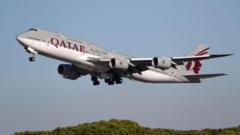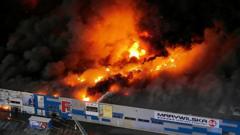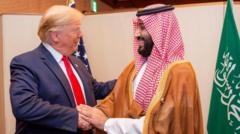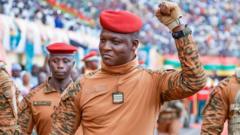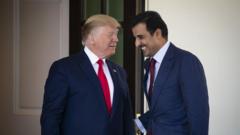In a significant move aimed at resolving ongoing conflict, Zelensky expressed readiness for direct talks with Putin, emphasizing the need for a ceasefire prior to discussions.
Zelensky Extends Personal Invitation to Putin for Istanbul Peace Talks

Zelensky Extends Personal Invitation to Putin for Istanbul Peace Talks
Ukrainian President Volodymyr Zelensky has publicly invited Russian President Vladimir Putin to meet for negotiations in Turkey, following calls from Donald Trump for Ukraine to pursue direct discussions with Russia.
Ukrainian President Volodymyr Zelensky has officially proposed a meeting with Russian President Vladimir Putin in Istanbul on Thursday, signaling a keen interest in resolving the ongoing conflict in Ukraine. This invitation comes in response to former US President Donald Trump's recent call for Ukraine to accept Putin's offer for direct negotiations between the two nations, an initiative underscored by the urgency to end hostilities.
Zelensky shared his intentions on social media platform X, stating, "There is no point in prolonging the killings. And I will be waiting for Putin in Türkiye on Thursday. Personally." However, he reiterated that any meaningful dialogue would necessitate a ceasefire, highlighting the Ukrainian government's conditional openness to negotiations.
In the wake of European leaders' meeting over the past weekend, a coalition led by Western powers has urged for a 30-day ceasefire to commence, taking place immediately. Trump's endorsement of this dialogue stressed its potential to clarify the situation and inform future actions by European leaders and the United States.
"As long as we understand if a deal is on the table or not, the leaders can proceed accordingly," Trump articulated via his social media account. Zelensky echoed this sentiment, expressing hope that a ceasefire could be agreed upon prior to discussions, asserting that such a step would create an essential groundwork for diplomacy.
Putin's recent statement indicated an openness to serious negotiations, where he suggested that talks could mark the beginning of a comprehensive and enduring peace instead of a precursor to further military engagement. Nonetheless, he conditioned Russia's willingness for a ceasefire on Western military aid to Ukraine being halted.
During Saturday's discussion in Kyiv, significant allies—including UK Prime Minister Sir Keir Starmer and French President Emmanuel Macron—collectively urged for an unconditional ceasefire, warning of severe sanctions against Russia should Putin reject their proposal. While both sides compromise on the principle of resuming negotiations, the stark contrast in their respective positions warrants caution as the prospects for tangible agreements remain elusive.
With the recent history of stalled negotiations since early 2022, the path forward now hinges on whether both parties can navigate their entrenched stances to forge a new understanding that could, for the first time in years, lead to peace talks achieving substantive results.




